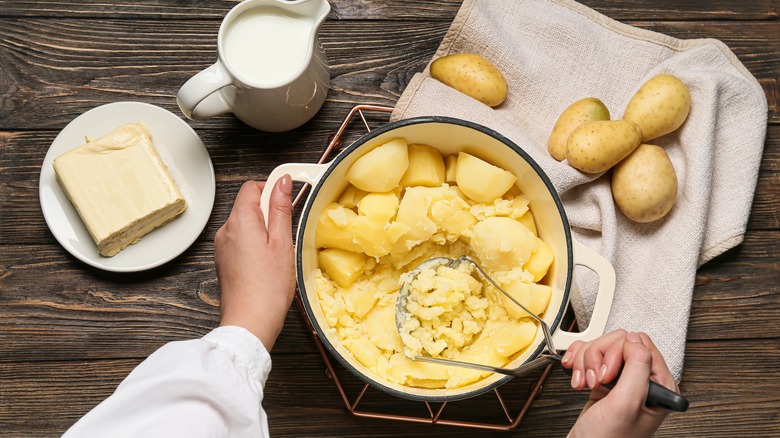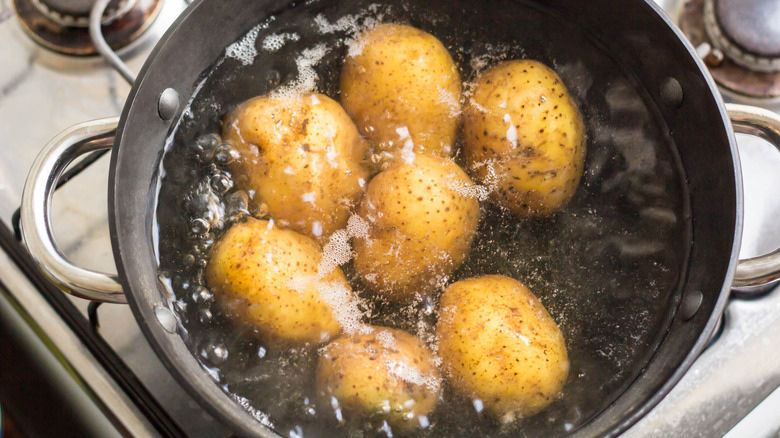The Best Way To Prevent Watery Mashed Potatoes
Taking in a spoonful of diluted mashed potatoes can be quite the unpleasant experience, but before you beat yourself up or knock the dinner party host, it's important to note a few things. The amount of water that's naturally present in potatoes is pretty intense -– 80% to be exact (per Almanac), and to cook them, we boil them in even more water. When you think about it, it sounds nearly impossible to get rid of the excess moisture that's masking all the good flavor. All the butter, heavy cream, or even garlic gets lost in translation. What choice do we have?
We've all been taught the no-brainers of how to boil potatoes, which are to always make sure you cut the potato pieces the same size for even cooking (via The Kitchn), to always start with cold water to ensure the potatoes cook through, and to salt the water generously (per Bon Appetit). However, no one told us what size to cut the potatoes.
Boil your potatoes in larger chunks
According to Bon Appetit, boiling potatoes whole or cut into larger chunks will result in less water seeping in, reducing moisture in your mashed potato dish. Also, keeping the skin on acts as a barrier to water. This could change up your normal routine of peeling potatoes beforehand and dicing them small. Smaller potato slices or baby potatoes soak up excess moisture, allowing water to take a field trip to the plate.
With red potatoes being smaller than russet potatoes, and Yukon golds hanging out somewhere in the middle, size matters. According to Delish, red and Yukon golds are the best options for boiling since they maintain their shape, while russet potatoes lock in the most moisture. The absorption of moisture is the culprit, so it's best to save russets or super small potatoes like fingerlings for baking and roasting.
So basically, you don't want to use too small or too large of a spud in your mashed potatoes. The best practice going forward is cooking red potatoes or Yukon golds, all similar in size, whole with the skin on. Once cooked, you can then peel the skin off, and you'll notice it's a lot easier that way (per MasterClass). The only thing left is to mash, add your butter and cream, and season to taste. This technique will lock in the water that was already in the potatoes before boiling without seeping in extra, resulting in a more concentrated flavor with every bite yielding pure delight.

